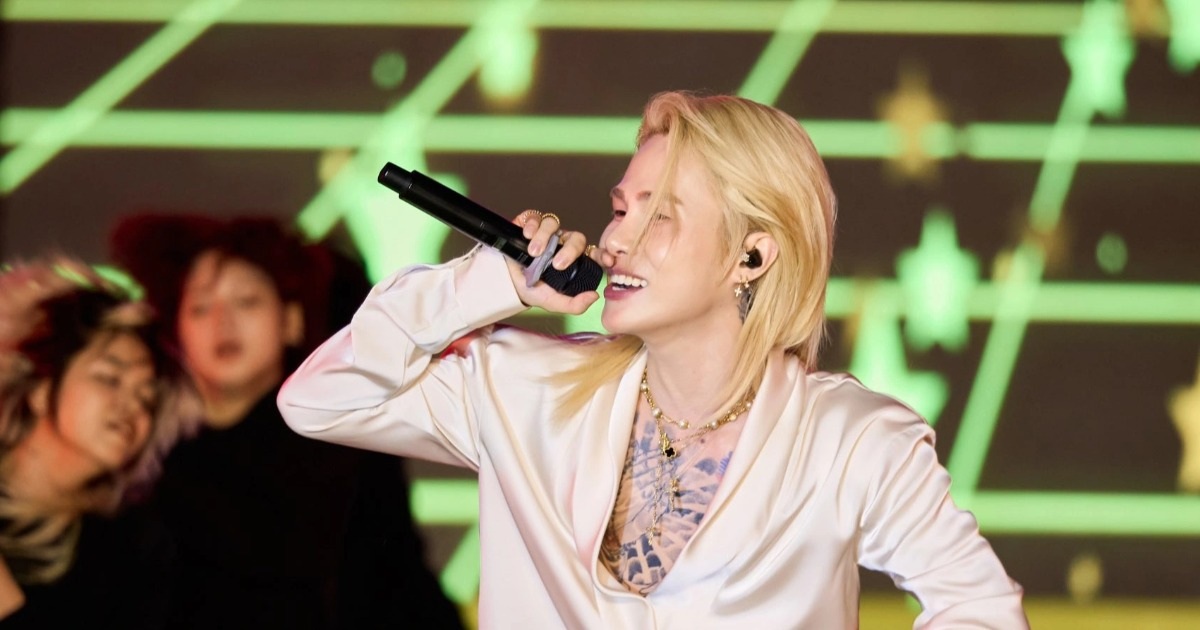On November 13, the Ho Chi Minh City Music Association organized a seminar titled “The Role and Responsibility of Music Professionals in HCMC,” aiming to enhance propaganda, education on professional ethics, and guidance for music composition and performance. This initiative contributes to shaping artistic aesthetics, preserving professional ethics, and spreading the values of truth, goodness, and beauty in the music scene.
The seminar took place amidst a recent surge in “deviant” songs, criticized as vulgar and offensive, sparking widespread debate on social media.
Master Nguyen Cam Le – Arts Department Specialist, HCMC Department of Culture and Sports – presenting at the seminar (Photo: H.V).
Master Nguyen Cam Le, a specialist from the Arts Department of the HCMC Department of Culture and Sports, believes that the root of the problem lies not only in management but, more profoundly, in the foundation of training and artists’ awareness. According to her, the number of formally trained individuals entering the performing market remains quite modest.
“I’m not painting everyone with the same brush, but most of them do little research, attend few classes, or undergo training. An artist or musician who receives formal training for at least four years at a conservatory or university will acquire specialized knowledge and musical aesthetics. The subject of musical aesthetics is essential,” she stated.
She cited a maxim from Professor Ca Le Thuan that deeply resonated with her: “The musical aesthetics of an artist must encompass three dimensions: breadth of knowledge, height of ideology, and depth of emotion.”
According to her, if artists possess these three elements, they would not be able to write or sing offensive and deviant lyrics, as seen in some current cases.
Master Nguyen Cam Le emphasized that not only creators but also art consumers need to be equipped with aesthetic taste and cultural knowledge.
“Through my experience in training and teaching, I’ve observed that the majority of young people who receive formal training and take additional aptitude courses have a distinctly different artistic sensibility. They don’t listen to, watch, or participate in deviant performances.
However, currently, many audience members attend music nights merely to ‘follow the trend’ (PV), to get closer to their idols, rather than truly appreciating artistic value. Listeners and viewers also need to be educated on the culture of appreciation,” she remarked.
She also pointed out an imbalance in media and entertainment programs. According to her, game shows and rap programs currently dominate television broadcasts, but their content often lacks selectivity.
“Many songs with offensive lyrics originate from the rap genre or incorporate rap into songs. Media agencies need to balance this, otherwise, it will skew artists’ standards and even affect children.
When rap takes center stage, even children start rapping. I only wish there were more game shows and programs about ‘vè,’ ‘hò,’ ‘lý’—traditional Vietnamese musical values—promoted more vigorously. That is also a way to balance and spread positive artistic values,” Master Nguyen Cam Le shared her perspective.
Mr. Nguyen Quang Vinh – Chairman of the Ho Chi Minh City Music Association – served as chairman at the seminar (Photo: H.V).
Musician Truong Quang Luc – composer of the song This Earth Is Ours – spoke frankly about singer Jack, after he was fined 55 million VND and banned from performing for 9 months by the Hanoi Department of Culture and Sports.
“Composing such a vulgar song shows contempt for the public. This is an offensive act that infuriates genuine artists. The song was not on the censorship list but was still performed on stage. When met with backlash, the artist gave a defensive and unconvincing explanation.
Management agencies should consider this a serious incident, causing great harm to the audience generation, and impose strict sanctions. We should view such improper acts as a form of ‘drug’ in art, deeply affecting thought and emotion.”
Meanwhile, Dr. – Director Hoang Duan, Deputy Head of the Department of Cultural and Artistic Management (Ho Chi Minh City University of Culture), argued for the necessity of a performing arts law.
“We already have laws on cinema, publishing, etc. The development of a performing arts law is absolutely essential, especially in the context of cultural industry development.
This law needs to regulate basic issues concerning performance, for example, whether costumes conform to traditional customs and aesthetics, and that song lyrics must be thoroughly censored. Additionally, we need to protect and praise those who compose well, creating sustainable cultural values for the nation’s art scene.”
Singer Jack (Photo: Character’s Facebook).
Concluding the seminar, Mr. Nguyen Tho Truyen, Deputy Head of the Propaganda and Mass Mobilization Department of the HCMC Party Committee, emphasized the crucial role of music in spiritual life, connecting communities, educating, and preserving culture.
Mr. Truyen hoped that agencies and units, especially the HCMC Music Association, would implement the contributions from the seminar, strengthen professional ethics education, guide music composition and performance, and thereby affirm aesthetic values and artistic ethics, spreading the values of truth, goodness, and beauty in society.



